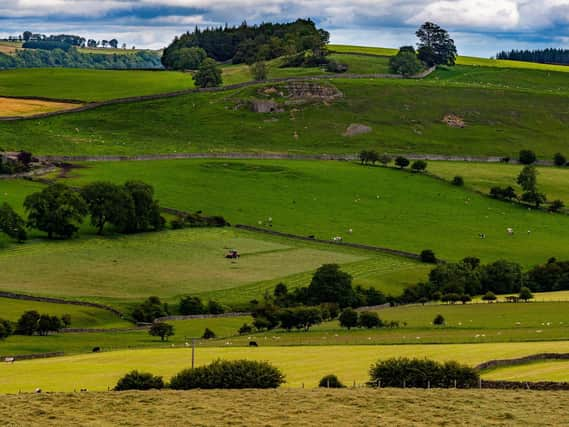Family farms in Yorkshire face perfect storm of trade deal, funding issues and ageing workforce


According to the Government’s statistics, 72 per cent of all land in the UK is under some form of agricultural management and many of the more traditional enterprises are family run businesses which are run on increasingly tight margins.
While many have benefitted from buoyant livestock prices over the last 12 months, there are concerns vital income could end up being diverted under the new agricultural funding model which will require them to sign up to new Environmental Land Management Schemes and Sustainable Farming Initiatives.
Advertisement
Hide AdAdvertisement
Hide AdThe Shadow Secretary of State for Environment, Food and Rural Affairs, Luke Pollard said: “There appears to be a deliberate lack of information being given by the Government and my real fear is that small family farms will be the big losers.
“These farms are the backbone of the countryside and typically rely on current production subsidies for between 40 and 60 per cent of their income.
“The new funding model will instead reward projects such as hedgerow planting to increase natural habitats and flood mitigation work, but sadly I suspect the money for these initiatives will go towards specialist consultants rather than the farms themselves.
“This will have a major impact on incomes and with half of all agricultural land run by tenant farmers there are real fears that this will be compounded by rent increases to support these new initiatives.
Advertisement
Hide AdAdvertisement
Hide Ad“If that happens, the real casualty of this new deal will be the character of the English countryside.”
Concerns for the future of small enterprises have been further fuelled by fears an Australian trade deal, due to be finalised in the coming weeks, could see the UK’s homegrown beef industry ravaged by cheap imports produced by large-scale operations.
Julian Sturdy, the Conservative MP for York Outer and a member of the Environment, Food and Rural Affairs committee, said: “This new model has the potential to deliver real and positive change for Yorkshire.
“However, so much of this region’s iconic landscapes are shaped by livestock and we must not move to a model which sees food production completely sidelined in favour of environmental improvements.
Advertisement
Hide AdAdvertisement
Hide Ad“If we end up importing more beef, sheep and dairy products we will simply be exporting our environmental damage and that cannot be allowed to happen.
“Inevitably in any major change of policy there will be winners and losers, but most farmers are keen to embrace change.
“They want to run an operation which delivers high quality food and which is good for the environment and if we get this right both should be possible.”
This week, the Government announced it would offer farmers looking to leave the industry lump sums of up to £100,000.
Advertisement
Hide AdAdvertisement
Hide AdThe move is in part an attempt to drive new blood into a sector facing an ageing population, but some fear it could hasten the move towards large-scale operations at the expense of smaller, family run businesses.
Phil Stocker, the chief executive officer of the National Sheep Association, said: “We will have to wait and see how many farmers take up the offer, but what we must do is ensure that the protection of our landscape is at the heart of any decisions we take.
“Farmers and their livestock have been instrumental in shaping the countryside as we know it and while the industry is facing some of the biggest changes in living memory we must not forget that.”